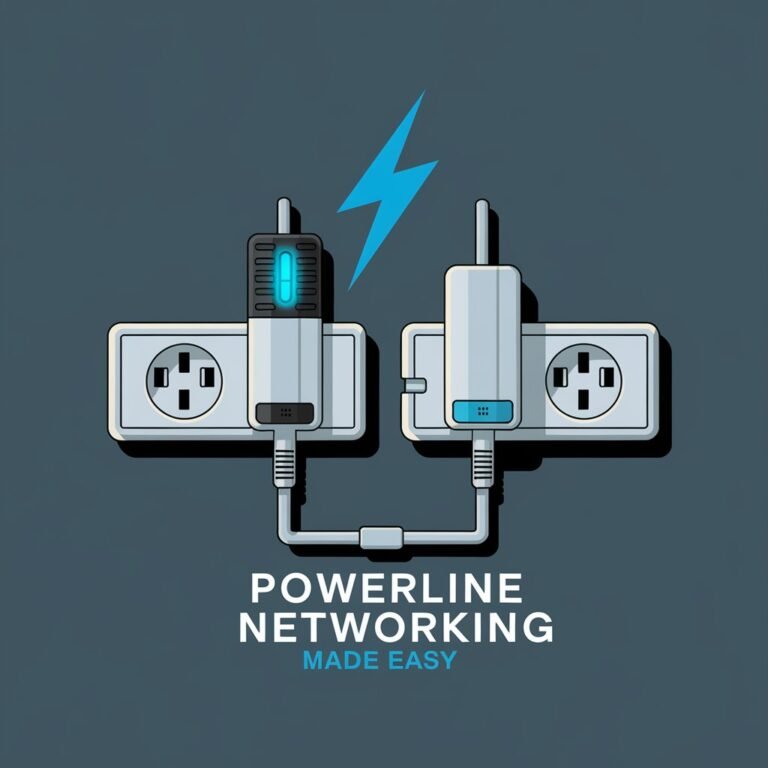How Quantum Tech HD Is Redefining Modern Technology in 2025
Introduction to Quantum Tech HD
In the rapidly evolving landscape of technology, 2025 marks a pivotal year where futuristic concepts like quantum computing are no longer theoretical. One standout advancement is Quantum Tech HD – a term that signifies the convergence of high-definition processing power with quantum-level computation. As industries seek new ways to manage complex systems, speed up calculations, and process massive data volumes in real-time, this advanced tech is stepping in to reshape the modern technological ecosystem.
By blending the quantum realm’s potential with high-definition output, this technology is unlocking unprecedented possibilities. But what exactly is Quantum Tech HD, and how is it poised to transform the tech world, especially when paired with the latest wearable technology? Let’s dive in.
Table of Contents
How Quantum Computing Is Changing Modern Technology
Breaking Speed Barriers
Traditional computing systems process information sequentially. In contrast, quantum platforms operate using qubits, which can handle multiple states simultaneously. This parallelism leads to exponential speed increases, drastically reducing the time required for complex tasks like molecular simulations or AI model training.
According to IBM Quantum, scalable quantum systems are becoming essential for solving problems that are currently unsolvable with classical computing.
Enhancing AI and Machine Learning
With next-gen quantum computing, AI algorithms can be trained faster and more accurately. Enhanced data modeling capabilities allow for better predictions, smarter automation, and more intuitive user experiences. These systems are already showing promise in areas like drug discovery, financial forecasting, and climate modeling.
High-Definition Data Handling
The HD aspect refers to ultra-precise, high-fidelity outputs. Whether it’s in visual rendering for simulations or real-time decision-making for autonomous systems, the clarity and depth of data processing are leaps ahead of legacy systems.
Integration with the Latest Wearable Technology
Quantum Processing in Wearables
One of the most exciting developments is the integration of advanced quantum systems into the latest wearable technology. Wearables are no longer just fitness trackers; they are becoming complex biosensors, AR interfaces, and health diagnostic tools. Quantum processing allows these devices to analyze biofeedback data in real time, making them smarter and more responsive.
> For a deep dive into upcoming gadgets and trends, check out our guide to the latest wearable technology innovations in 2025.
Real-Time Health Monitoring
Imagine a smartwatch that doesn’t just track your heart rate but analyzes it against real-time environmental data, personal medical history, and predictive AI to alert you of potential health issues before symptoms arise. This level of intelligent analysis is now achievable.
Use Cases in Sports and Rehabilitation
In sports, quantum-enhanced wearables can fine-tune athlete performance by analyzing movement, exertion, and biometric feedback with extraordinary precision. In healthcare, patients recovering from surgery can wear devices that use quantum data processing to personalize rehabilitation plans.
Quantum Computing vs Traditional Systems
| Feature | Traditional Computing | Quantum Tech Equivalent |
|---|---|---|
| Data Units | Bits (0 or 1) | Qubits (0, 1, or both) |
| Speed | Linear Processing | Exponential Parallelism |
| Applications | Limited to Classical | Complex, Multi-variable |
| Energy Efficiency | Moderate | High (for specific tasks) |
| Wearable Integration | Basic Sensors | Smart Predictive Systems |
Quantum platforms outperform traditional systems by enabling faster, smarter, and more personalized data interactions.
Industries Being Transformed in 2025
Healthcare
Quantum-enhanced diagnostic tools analyze DNA sequences and medical images faster than ever, aiding in early disease detection and personalized treatments. Coupled with the latest wearable technology, continuous patient monitoring becomes more insightful and actionable.
Finance
Financial institutions are leveraging quantum models to optimize portfolios, detect fraud, and run market simulations. Their unmatched computing power helps predict market shifts in real-time.
Automotive
Self-driving vehicles benefit immensely from quantum-level computations. Instant analysis of traffic data, GPS signals, and vehicle mechanics allows for smoother autonomous operation.
Aerospace and Defense
Quantum platforms support encrypted communications, radar enhancements, and advanced simulation models crucial for national security and space exploration.
Consumer Tech
Smartphones, AR/VR systems, and home automation devices are all beginning to integrate quantum-enhanced processing to provide more seamless and responsive user experiences.
Challenges and Future Outlook
Technical Hurdles
Quantum systems are delicate and require near-zero temperatures to operate efficiently. Miniaturizing them for consumer use, especially in wearables, is a key challenge. However, 2025 has seen strides in stabilizing portable quantum modules.
Ethical and Regulatory Considerations
With great computational power comes the responsibility to use it wisely. Ensuring that this advanced tech doesn’t compromise privacy, especially in the latest wearable technology, is a significant concern.
The Next Five Years
Expect these platforms to move from research labs to commercial applications. As quantum hardware becomes more accessible and developers create optimized software, industries across the board will undergo fundamental transformations.
Conclusion
Quantum Tech HD represents a leap in both concept and capability. Its integration with the latest wearable technology signals a future where personalized computing, real-time diagnostics, and intelligent automation become mainstream. As we continue through 2025, the influence of quantum-enabled systems will ripple through every major sector – from healthcare to consumer electronics.
Now is the time for innovators, developers, and end-users to understand and embrace this transformative technology. The future isn’t just digital – it’s quantum.







